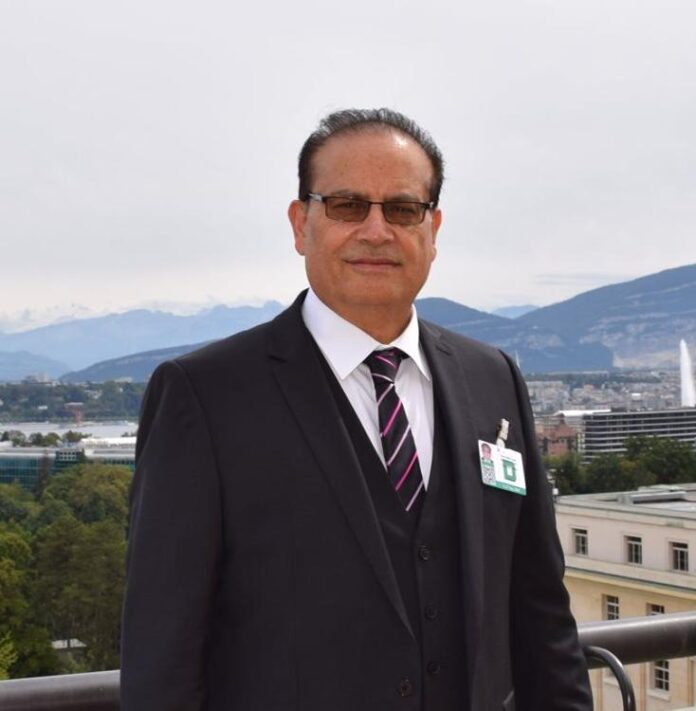By: Qamar Bashir
Breaking the deafening silence against oppressions of the courts by the six courageous judges had given the courage and strength to the Supreme Court’s three-member bench to admit the appeal preferred by the Sunni Ittehad Council (SIC), suspended the the decision of the Peshawar High Court, and declared that those elected against the reserve seats claimed by SIC will not be able cast their votes in any matter being taken by the assemblies both at the national and provincial level.
During the hearing the bench raised many pertinent and consequential questions which they might not have dared raised prior to the six Judges letter. “The most consequential question, ‘Would a political party get reserved seats according to the seats it has won, or can it also get more [than its share]?’ The answer was, ‘Any political party, under any circumstances, cannot get more than its share of reserved seats.’
The second question was, ‘Where is it written in the law that the remaining [reserved] seats should be distributed among the same political parties?’ Next question was, ‘Where is it written in the law that a political party cannot contest elections upon not receiving an electoral symbol?’ ‘How is it possible that someone’s mandate is handed over to someone else?’ ‘Can seats belonging to independent candidates be distributed among other parties?’ ‘Can other remaining reserved seats also be distributed to them? Is there anything like that in the law?’. ‘If there is nothing as such in the law, then isn’t doing so against the Constitutional scheme?’ Whether the ECP had not given the unallocated reserved seats to other political parties under its suo motu powers. ‘What cannot be done directly cannot be done indirectly either,’. ‘Is it right to ignore a political party’s mandate in an indirect manner?’ The most consequential observation was: ‘One thing is decided — a party would only get reserved seats according to the representation it has [in the assemblies].'”
“Both the Attorney General and the ECP representative could not reply to any of the questions to the satisfaction of the three-member bench. Consequently, the bench accepted the case for hearing, suspended the earlier ECP and PHC decisions limited to the allocation of the remaining reserved seats, which had been distributed among three other political parties.
“The current government perhaps did not anticipate that the Supreme Court Procedure and Practices Act 2023, which deprived the chief justice of the sole power to constitute benches, would work against them. Recognizing that this bench did not include any judges perceived to be favorable to them, the Attorney General at the outset raised an objection against the formation of the bench and demanded the formation of a larger bench.
The objection was promptly rejected, with the argument that the appeal was filed under Article 185 of the Constitution and not Article 184/3. Therefore, the question before the bench was whether the appeals were admissible or not, and if found maintainable, a larger bench could also be constituted to hear the case.
The newfound strength and courage, and the demonstration of their commitment to not only deliver justice but also ensure that justice is seen to be delivered, was a consequence of the six judges’ letter to the Supreme Judicial Council.
During the hearing on April 30th, almost all judges of the bench expressed dismay over the character-smearing campaign against the six judges, noting that personal and sensitive data had been retrieved from NADRA, PTI, immigration records, and travel history, which no member of the public could have accessed. They observed with great pain and anguish that the same executive branch, which is supposed to protect the judiciary, seemed to have turned against it.”
“They insisted, without succumbing to any argument, that the interference of the executive in the judiciary is a matter of paramount importance, therefore, the Supreme Court has the unavoidable responsibility to act, and act now and fast, to create a foolproof firewall around the judiciary at all levels to shield it from outside interference.
During the hearing on April-30, the Peshawar High Court’s response, among others, was read out. The PHC stated that, in order to receive a favorable decision in politically consequential matters, the court was threatened by the non-state actors. The PHC’s admission explained the level of fear, intimidation, and threat it faced. Knowing that upholding the decision of the EC would be unconstitutional and unlawful, the PHC did so to protect themselves and the lives of their loved ones.”
“If the Supreme Court had not intervened to suspend the allocation of 78 reserved seats, this would have brought the total strength of PML(N) and its allies in the National Assembly close to achieving a two-thirds majority and would have given them unmandated power to amend the constitution as they see fit, whenever required.
This verdict of the Supreme Court has also opened the door for hearing on the merit of other consequential and linked cases awaiting hearing by the Supreme Court, such as the matter of compiling the Elections-2024 results based on Form 45, illegal arrest and incarceration of PTI founder, PTI’s leaders, and workers, among others.
Let’s consider a hypothetical scenario where the Supreme Court fixes the case of election irregularities and announces that election results should be compiled based on Form 45. According to PTI and independent election observers, this could mean that PTI would secure 180 seats in the National Assembly. When combined with reserved seats, PTI would have a comfortable majority to form the government both at the center and in Punjab. Consequently, the incumbent governments would have to step down.
Let us assume further that the cases against the PTI leader are heard by the Supreme Court purely on merit. This could mean that the founder chairman of PTI would soon be released from jail. He would then contest the election on any seat or seats and most likely, after winning the elections, will become the country’s next legitimate and credible prime minister, opening new vistas of either confrontation or reconciliation, instability or stability depending upon how the establishment, political parties, and foreign powers react to this scenario.”
By: Qamar Bashir
Former Press Secretary to the President
Former Press Minister to the Embassy of Pakistan to France
Former MD, SRBC

















